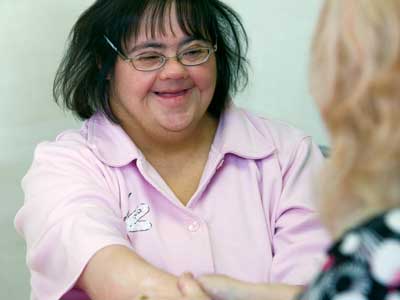
Everyone who cares about vulnerable adults or children should believe without reservation that they will do nothing but good and will never deliberately cause harm to anyone that they support.
We want to see the best in care workers and the idea that we should also understand the worst in people is uncomfortable. But that is exactly what we must do if we are to ensure everyone’s safety and well-being.
We work hard to ensure that our service users will have a good and fulfilling life. We encourage measured risks whether it is cooking for the first time, entering a new relationship or undertaking an exciting new pastime. Each of these activities is life enhancing but the adventure is managed so that risk is minimised.
However, safeguarding carries the association of deliberate harm or injury caused through negligence. It happens here and everywhere, and eliminating harm is a responsibility for every one of us.
Safeguarding panels for the protection of children, young people and vulnerable adults are an invaluable resource for raising awareness of risk and reinforcing the message that it is simply wrong to cause harm. We hold safeguarding panels in high regard.
However their actions are generally triggered after a harmful event has occurred and we have always felt that this is just too late.
CareTech is a publicly owned company and we are bound by very strict rules for the governance of our financial affairs and for our behaviour. We take this seriously and established a Safeguarding and Care Governance Committee to help us deliver safe care of the highest quality. This is a pioneering initiative led by independent non-executive directors who have the power and authority to hold the executive directors to account. The committee is chaired by Mike Adams OBE.
The committee meets regularly to review all cases where safeguarding is an issue and to learn whatever we can from what happened.
Prevention is better than cure so the committee introduced a popular whistleblowing campaign called “Tell Us” that enables any concerned person to contact the care director or CEO personally.
The board has also been actively engaging with front line staff, encouraging and supporting the delivery of safe, first class care in services to be proud of.
These initiatives have helped to improve services that were already good. Safeguarding events are rare for us but most staff are now confident that they can share their anxieties with directors before a problem occurs.
Stewart Wallace


 A trauma-informed approach to social work: practice tips
A trauma-informed approach to social work: practice tips  Problem gambling: how to recognise the warning signs
Problem gambling: how to recognise the warning signs 




 Find out how to develop your emotional resilience with our free downloadable guide
Find out how to develop your emotional resilience with our free downloadable guide  Develop your social work career with Community Care’s Careers and Training Guide
Develop your social work career with Community Care’s Careers and Training Guide  ‘Dear Sajid Javid: please end the inappropriate detention of autistic people and those with learning disabilities’
‘Dear Sajid Javid: please end the inappropriate detention of autistic people and those with learning disabilities’ Ofsted calls for power to scrutinise children’s home groups
Ofsted calls for power to scrutinise children’s home groups Seven in eight commissioners paying below ‘minimum rate for home care’
Seven in eight commissioners paying below ‘minimum rate for home care’
 Facebook
Facebook X
X LinkedIn
LinkedIn Instagram
Instagram
Comments are closed.